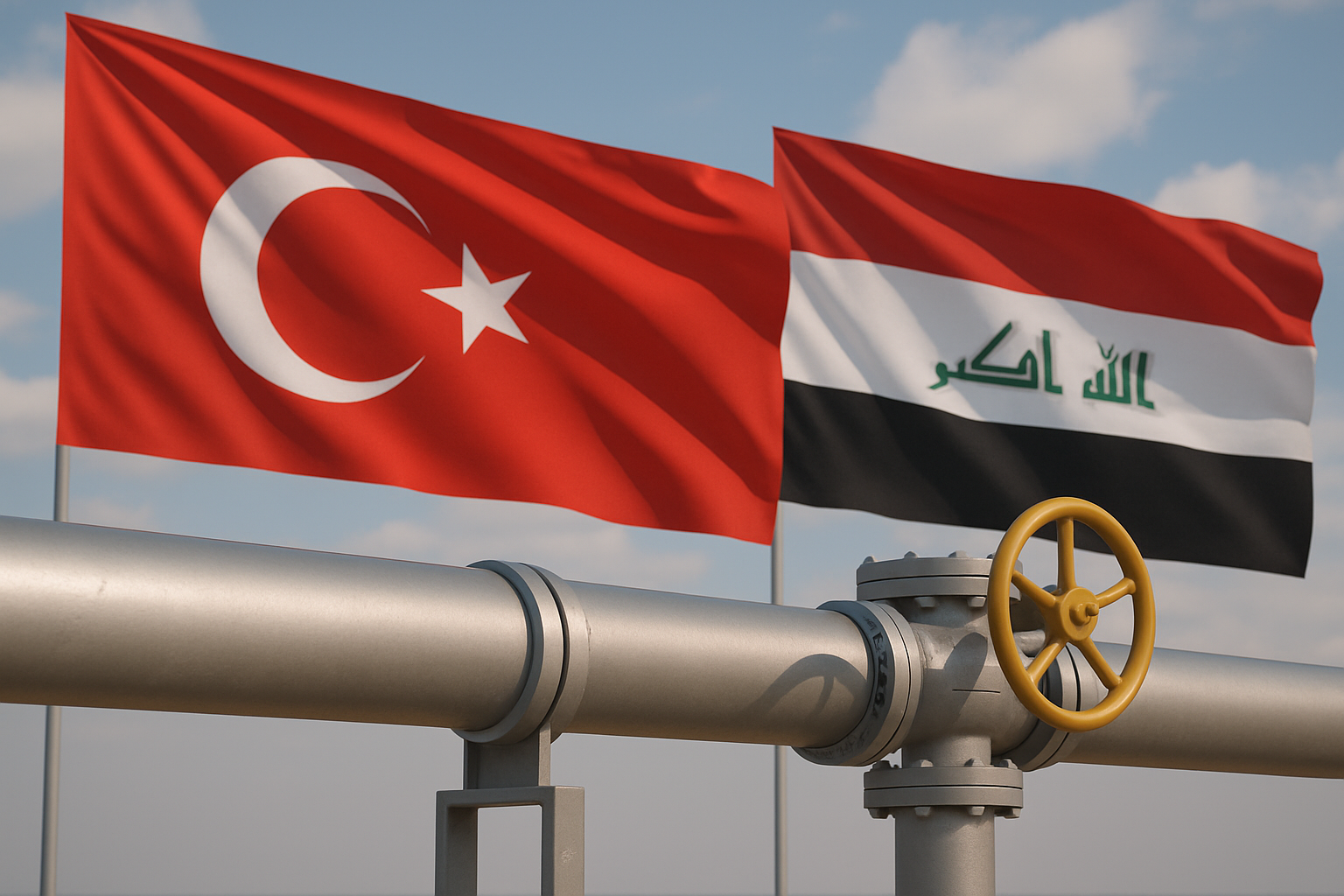
Turkish President Erdoğan announced this week that Turkey would terminate its pipeline agreement with Iraq, effective in one year. The move followed a painful agreement between the Iraqi federal government and the Kurdistan Regional Government (KRG) over revenue-sharing. This would normally have led to the reopening of the Kirkuk-Ceyhan pipeline, which was shut down following an arbitration ruling against Turkey in March 2023.
The Kirkuk-Ceyhan Pipeline and Legal Feuds
The Kirkuk-Ceyhan pipeline was completed in 1976 to transport crude oil from northern Iraq to Turkey’s Mediterranean terminal in Ceyhan, with a capacity of 1.6 million barrels per day (bpd). In March 2023, the International Chamber of Commerce (ICC) ruled that Turkey had violated its treaty obligations by allowing KRG exports through the pipeline without Baghdad’s approval. The court ordered Turkey to pay $1.5 billion in damages for the period 2014–2018. A second arbitration case is pending.
Baghdad continues to oppose any unilateral contracts or export arrangements by the KRG. In May 2025, the Iraqi federal government declared invalid a $110 billion deal between the KRG and U.S. companies HKN Energy and WesternZagros. The contract aimed to develop oil and gas fields in northern Iraq. Baghdad maintains that all natural resources are under the authority of the central government and that any agreements signed without federal approval are unconstitutional.
After years of feuding, Baghdad and Erbil have finally reached an agreement on oil exports and financial coordination this month. The KRG will transfer all oil produced in the region to Iraq’s State Oil Marketing Organization (SOMO) for export, with Baghdad providing an advance of $16 per barrel for a minimum of 230,000 bpd. The agreement also includes terms on cost-sharing for local consumption, the transfer of non-oil revenues, and federal oversight of salaries and expenditures. The deal was seen as a step toward resuming oil flows from the region through the Kirkuk-Ceyhan pipeline. Instead, Ankara formally withdrew from the agreement that had governed bilateral pipeline operations since the 1970s.
Turkey’s Reasons For Terminating the Agreement
There are two primary reasons behind Turkey’s decision to withdraw from the agreement. First, Ankara aims to increase pressure on Baghdad to reach a negotiated settlement on the arbitration issue. Turkey has not paid the $1.5 billion fine in the first arbitration case and wants Iraq to drop the second case. By halting oil flows and formally withdrawing from the legal framework governing the pipeline, Turkey signals once again that further business will depend on Iraq’s willingness to compromise. Iraq, for its part, still pursues the arbitration process and has not publicly indicated any change in its legal position.
Second, Turkey is also seeking to utilize the existing pipeline infrastructure for its own domestic oil production. In 2023, Turkish Petroleum (TPAO) announced the discovery of a large reserve in the Gabar region of southeastern Turkey. Production has since reached 81,000 bpd, and officials expect output to rise to 100,000 bpd later this year. It seems that continued growth in output in Gabar makes a permanent pipeline solution necessary for Turkey.
The state pipeline operator BOTAŞ has already constructed a connection between the Gabar fields and the Turkish section of the Kirkuk-Ceyhan pipeline. Turkey may have even started to utilize the pipeline. However, under the existing agreement with Iraq, Turkey cannot use its section of the line without Baghdad’s approval. As such, Ankara has argued that the current legal framework governing the pipeline does not respond to its current needs. By terminating the agreement, Turkey aims to negotiate new terms that would allow it to operate and modify the Turkish segment independently.
Ankara has already submitted a draft proposal to Baghdad that includes revised terms for pipeline governance and broader cooperation in oil, gas, and electricity. The proposal reportedly covers expanded energy trade, increased pipeline connectivity, and joint infrastructure development. The plan is linked to Iraq’s Development Road initiative, a $17 billion infrastructure corridor running from Basra to the Turkish border.
Diversification of supply routes remains a strategic priority for Turkey, which continues to heavily rely on oil and gas imports to meet its domestic needs. Despite recent discoveries such as the Gabar fields, domestic production will not be sufficient to meet its consumption. Besides, according to a forthcoming report by the InstituDE, Turkey’s oil demand may double by 2050.
Turkey aims to pressure Iraq into settling the $1.5 billion arbitration ruling and dropping a second pending case. It also wants to use the Kirkuk-Ceyhan pipeline to transport oil from its Gabar fields, which the current agreement does not allow. Whether the recent cancellation leads to a revised agreement or a prolonged freeze will depend on political decisions in both Ankara and Baghdad. While disagreements persist, both sides have strong incentives to reach a workable arrangement.